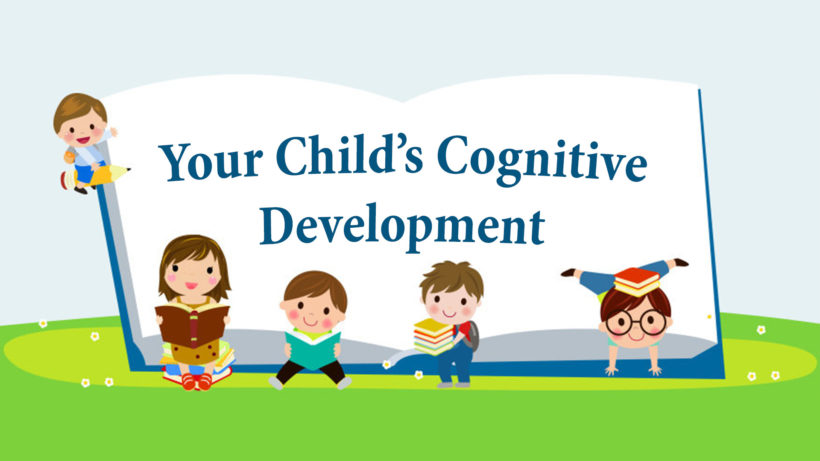As parents, teachers, or caregivers, one of the most fascinating things we witness is how a child’s mind grows. From the first smile to the first “Why?”, every moment is a window into a child’s cognitive development — the way they think, explore, and understand the world.

But what exactly happens in a child’s brain as they grow? Let’s break down the cognitive development stages in early childhood in a simple and relatable way.
🧠 What is Cognitive Development?
Cognitive development is all about how children learn to think, reason, remember, and solve problems. It’s not just about ABCs or counting — it’s about how they process the world around them.
Jean Piaget, A leading psychologist, described cognitive development in different stages. His theory helps us understand what to expect at each age, though every child grows at their own pace.
👶 Stage 1: Sensorimotor Stage (Birth to 2 years)
At this stage, babies learn through their senses and actions. They touch, taste, look, and listen — and that’s how they understand their world.
Key milestones:
Learning object permanence: They realize that things still exist even if they can’t see them. That’s why peek-a-boo is so exciting!
Exploring with hands and mouth.
Simple cause-and-effect understanding (e.g., “If I shake this rattle, it makes noise!”)
👉 Tip for grown-ups: Give them safe objects to explore. Talk, sing, and play — they’re soaking it all in.
🚼 Stage 2: Preoperational Stage (2 to 7 years)
Now the magic really begins! This is the time of imagination, pretend play, and big questions. But logical thinking is still developing.
What’s happening:
Children begin to use language to express ideas.
They’re very egocentric – meaning, they find it hard to see things from someone else’s point of view.
They focus on one aspect at a time. For example, if you pour the same juice into a taller glass, they might think there’s more juice now.
👉For adults, this means reading stories, playing pretend, and asking open-ended questions like “What do you think will happen next?”
🧩 Everyday Examples of Cognitive Growth
Even small everyday moments are full of cognitive learning:
Sorting toys by shape or color.
Solving a puzzle.
Asking endless “why” questions (yes, it’s tiring but so important!).
These aren’t just games — they’re how children build reasoning, memory, and understanding.
💬 The Significance of It
Being aware of these phases enables us to provide children with better support. Knowing what’s going through their head allows us to provide experiences that are just suitable for their developing brains—not too simple, not too hard.
Remember: not all kids fit neatly into these stages. Some might speak early, others might prefer drawing quietly. And that’s okay! What matters most is creating a loving, stimulating environment where children feel safe to explore.
🌼Conclusions
Early childhood cognitive development can be compared to the blooming of a flower. We can help young brains develop into inquisitive, self-assured learners with time, care, and attention.
Take a deep breath, smile, and remember that your child’s brain is developing in amazing ways the next time they ask, “Why is the sky blue?”